The Burrow
As we approach International Women’s Day (IWD) this month, we’ve started reflecting on the importance of women in sport. In particular, how crucial it is to support them in a safe and healthy journey throughout their career.
When it comes to health insurance, it can be a vital addition to the lifestyle of anyone playing sport – regardless of their gender.
Given the celebrations relating to IWD this month, the health insurance extras cover experts at Compare the Market are celebrating some of the great achievements of women in sport. So, what are some of the most iconic females in Olympic history and some of the most memorable moments of their careers?
In 1976 in Montreal, Romanian gymnast Nadia Comaneci scored a ten on the uneven bars – the first gymnast (man or woman) in Olympic history to be awarded a perfect score.
From Comaneci’s perfect ten to Simone Biles winning four gold medals in 2016, female Olympians have exhibited graceful athleticism for over 100 years.
Read on to find out more about some of the world’s most athletically talented women.
Olympia, the Greek city of Elis held the first recorded Olympic Games in 776 BC.1 However, these Olympic Games were limited to only men – women couldn’t even attend.
Almost 3,000 years later in 1896, Athens held the first Summer Olympics.2 Only 13 nations competed and all the participants were men. Finally, four years later in 1900, women competed at the Olympic Games for the first time. Twenty-two female athletes out of 997 participants competed in five sports, including tennis, sailing, croquet, equestrian and golf. Swiss sailor Helene De Pourtales became the first woman to win an Olympic gold medal.3
In 1912, women competed in swimming events for the first time. However, America was not represented as they prohibited women from competing in events without long skirts.4 Many other countries shared this conservative view.
In 1922, French feminist Alice Milliat organised the first ‘Women’s Olympic Games’ in Monte Carlo. The event protested the International Olympic Committee’s (IOC) refusal to allow women to compete in athletics events. These games and the following in 1926 proved popular, which pressured the IOC to allow women to compete in track and field at the 1928 Amsterdam Olympics.5
Meanwhile, in 1924, the first Winter Olympic Games were held in Chamonix, France. Women only competed in the figure skating.6
In 1996, the first IOC (International Olympic Committee) World Conference on Women and Sport took place in Lausanne, Switzerland. The Olympic body was established to progress women in sport.7
The IOC introduced softball, a women-only sport at the 1996 Atlanta Olympics. In 2006, women competed in rugby for the first time and golf was re-introduced for the first time since 1900. In 2012, with the inclusion of women’s boxing, men and women competed in all Olympic sporting events.8
In a sign of progress, women participation grew to 45 per cent women, 55 per cent men (a new record) at the 2016 Rio de Janeiro Olympics.9
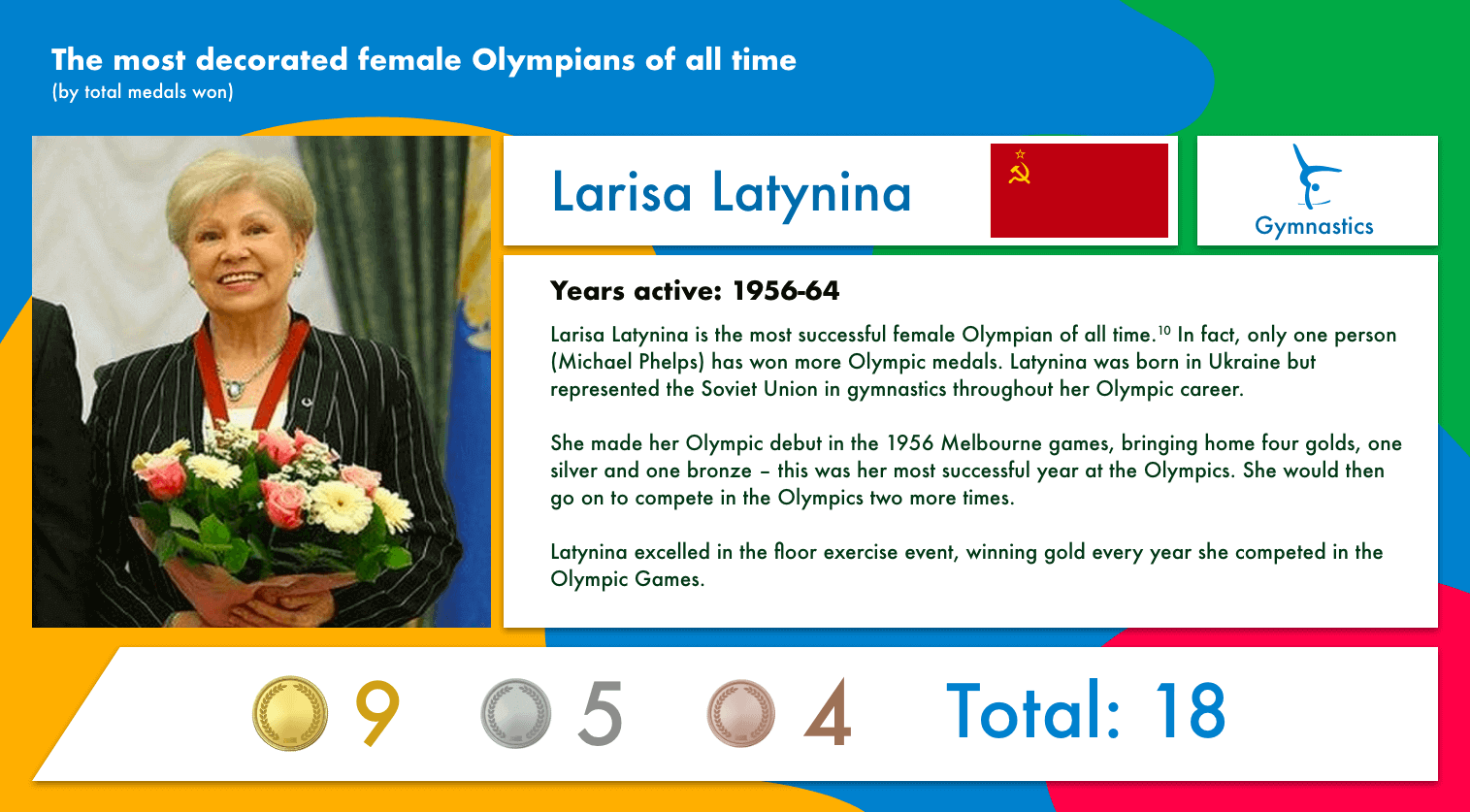
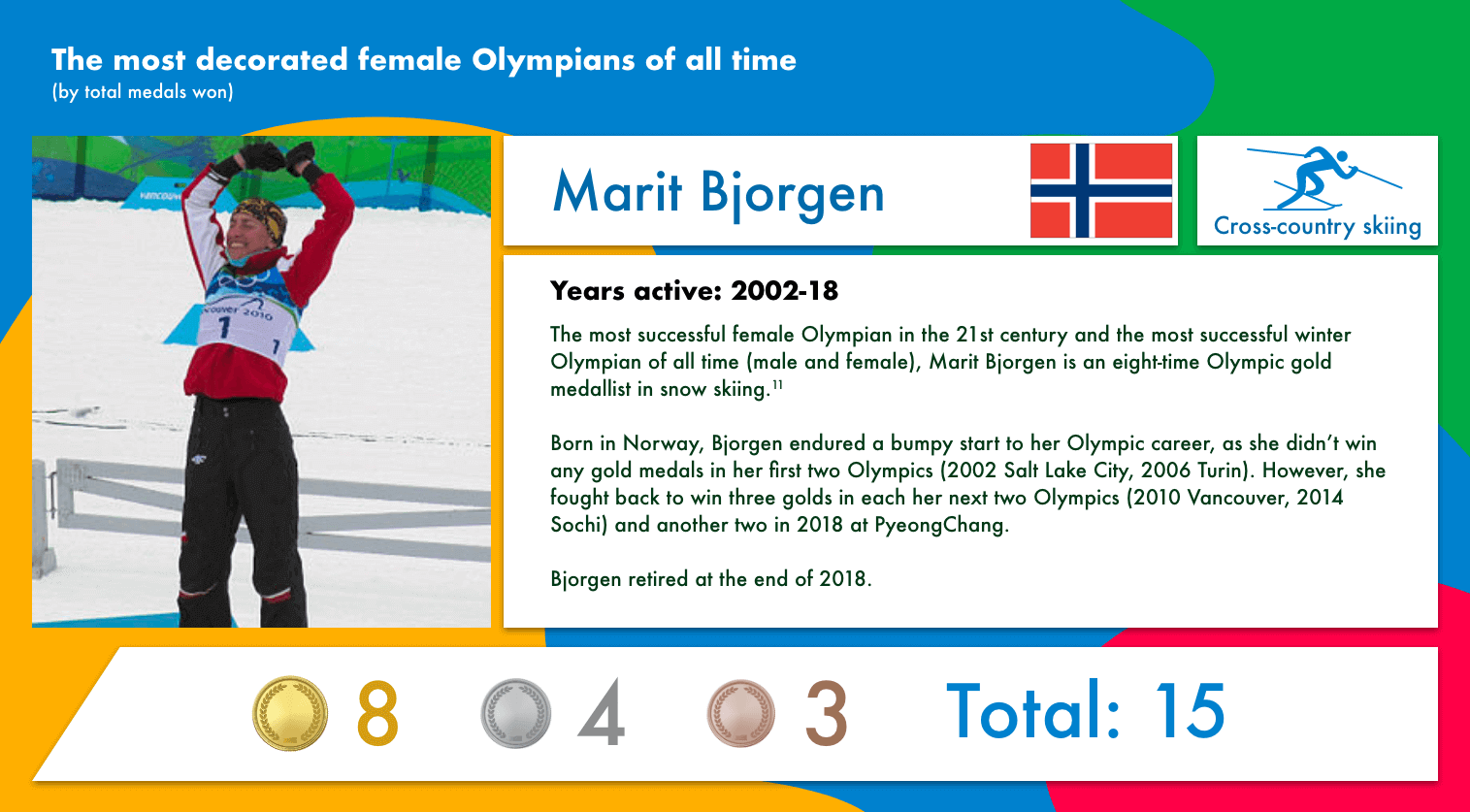
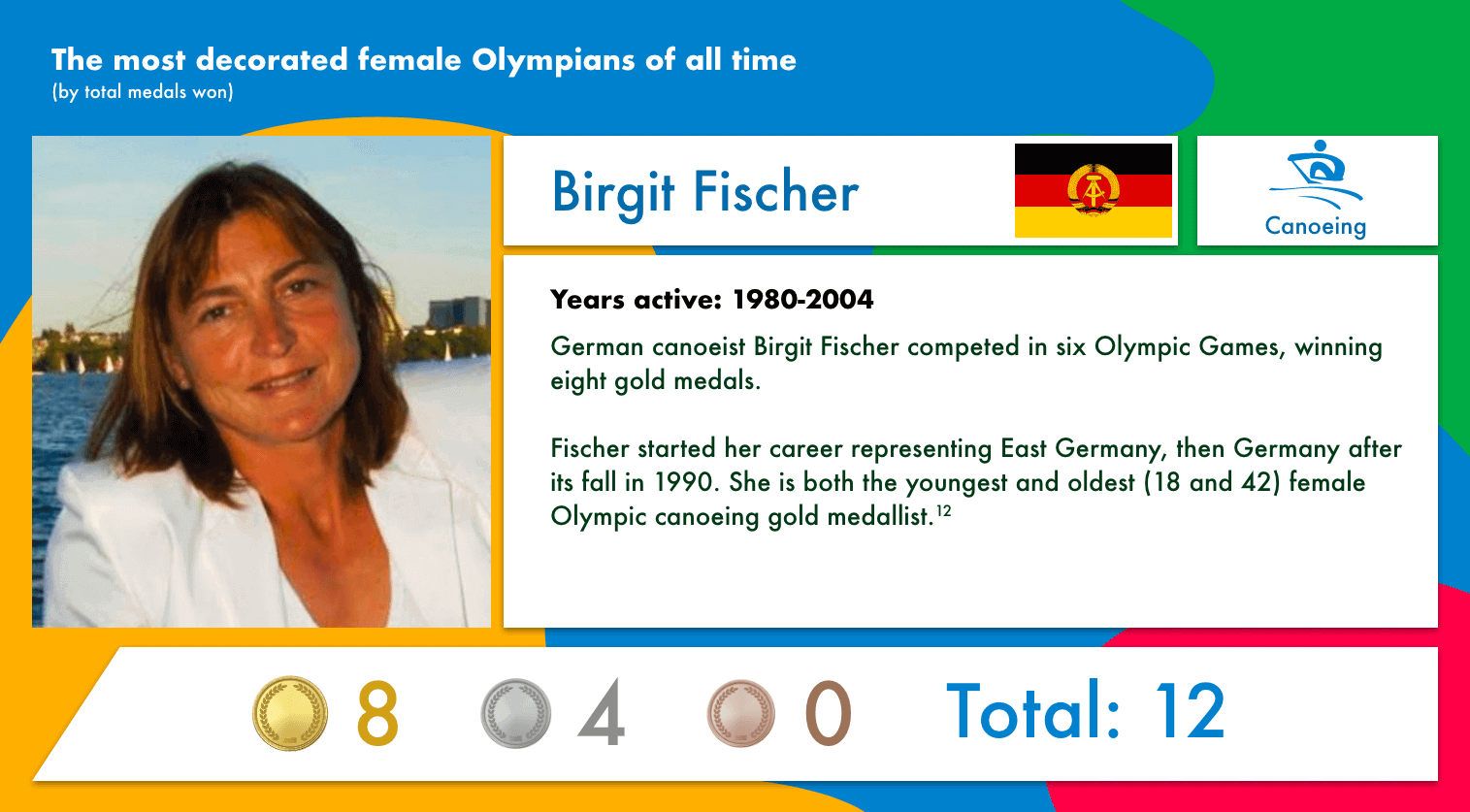
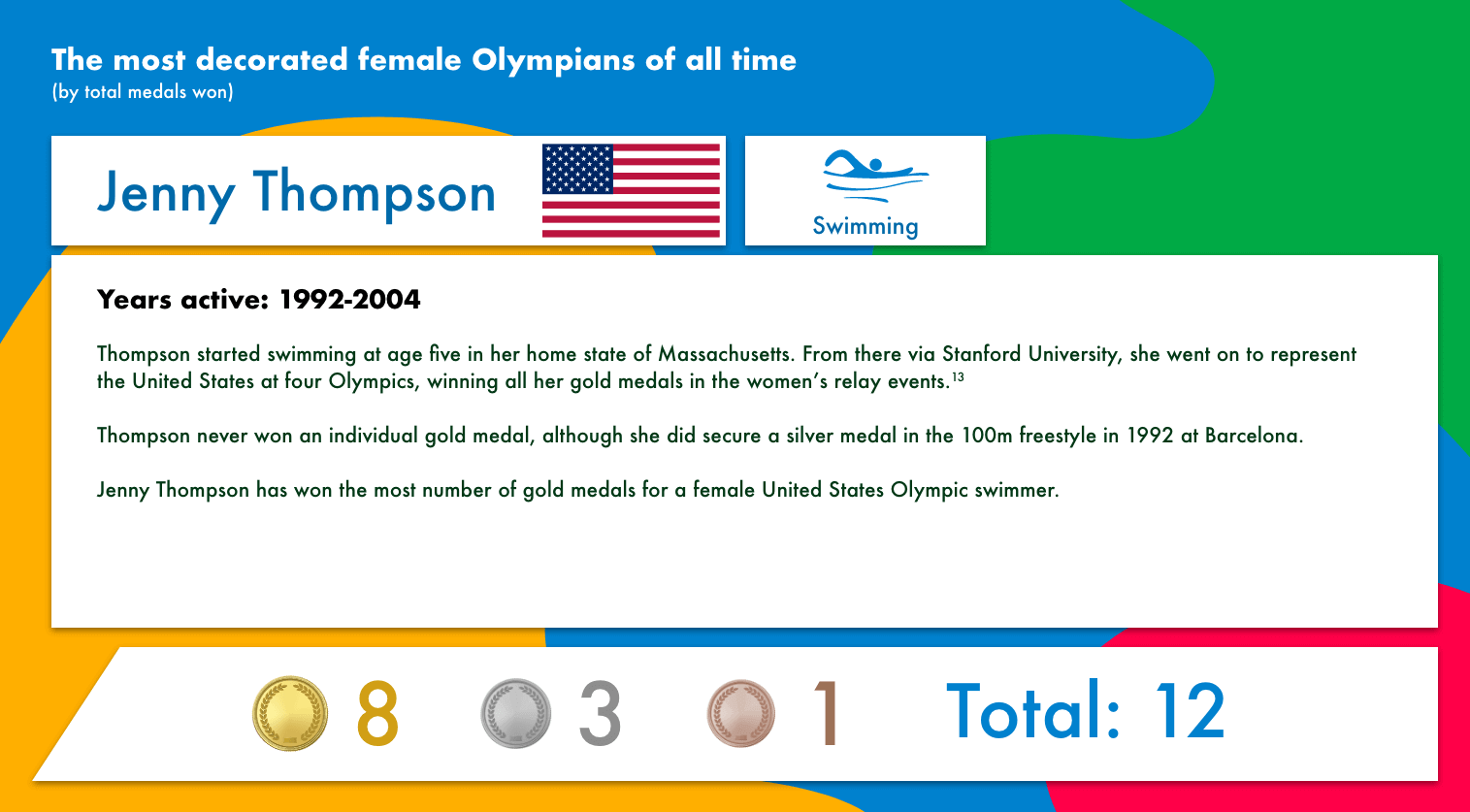
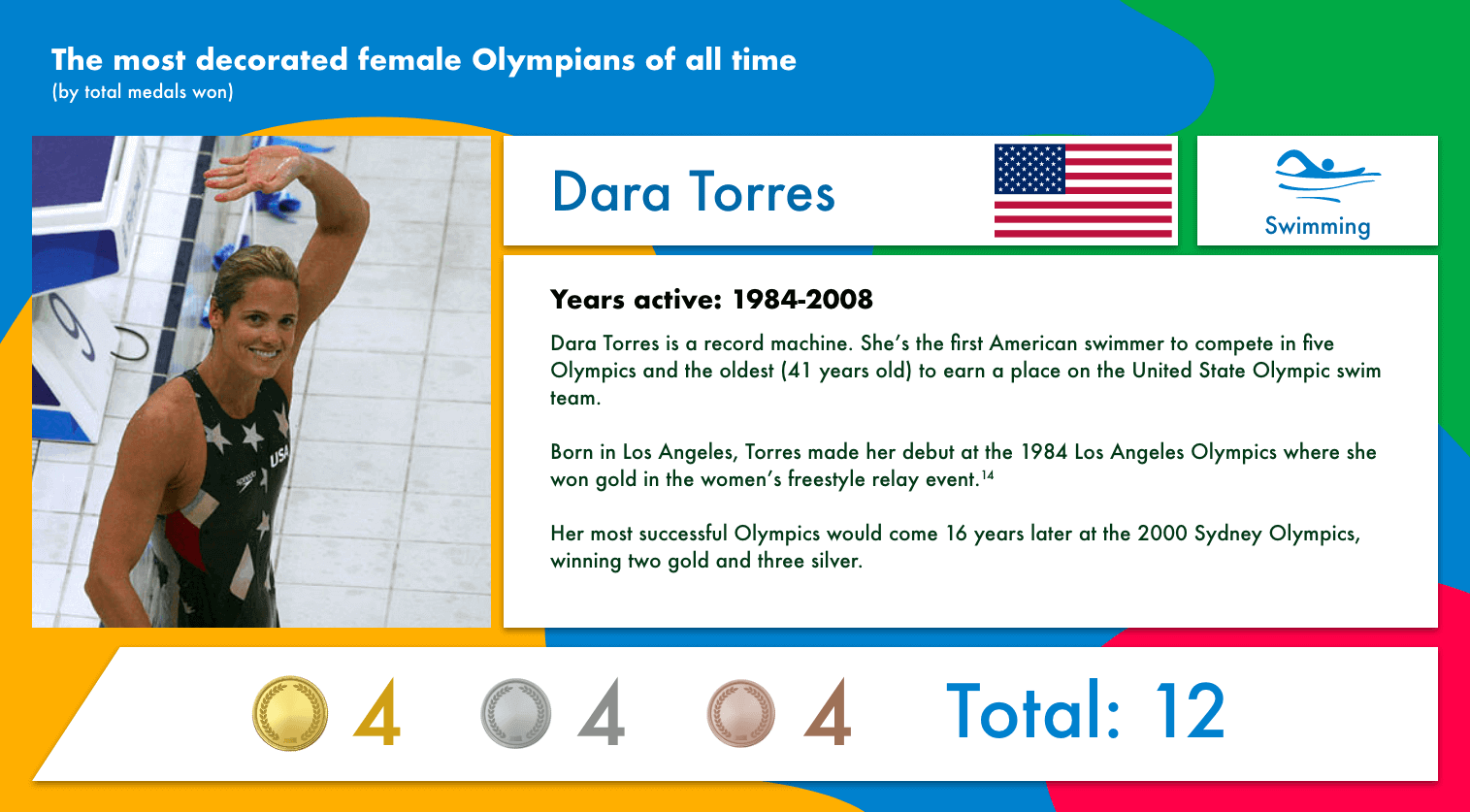
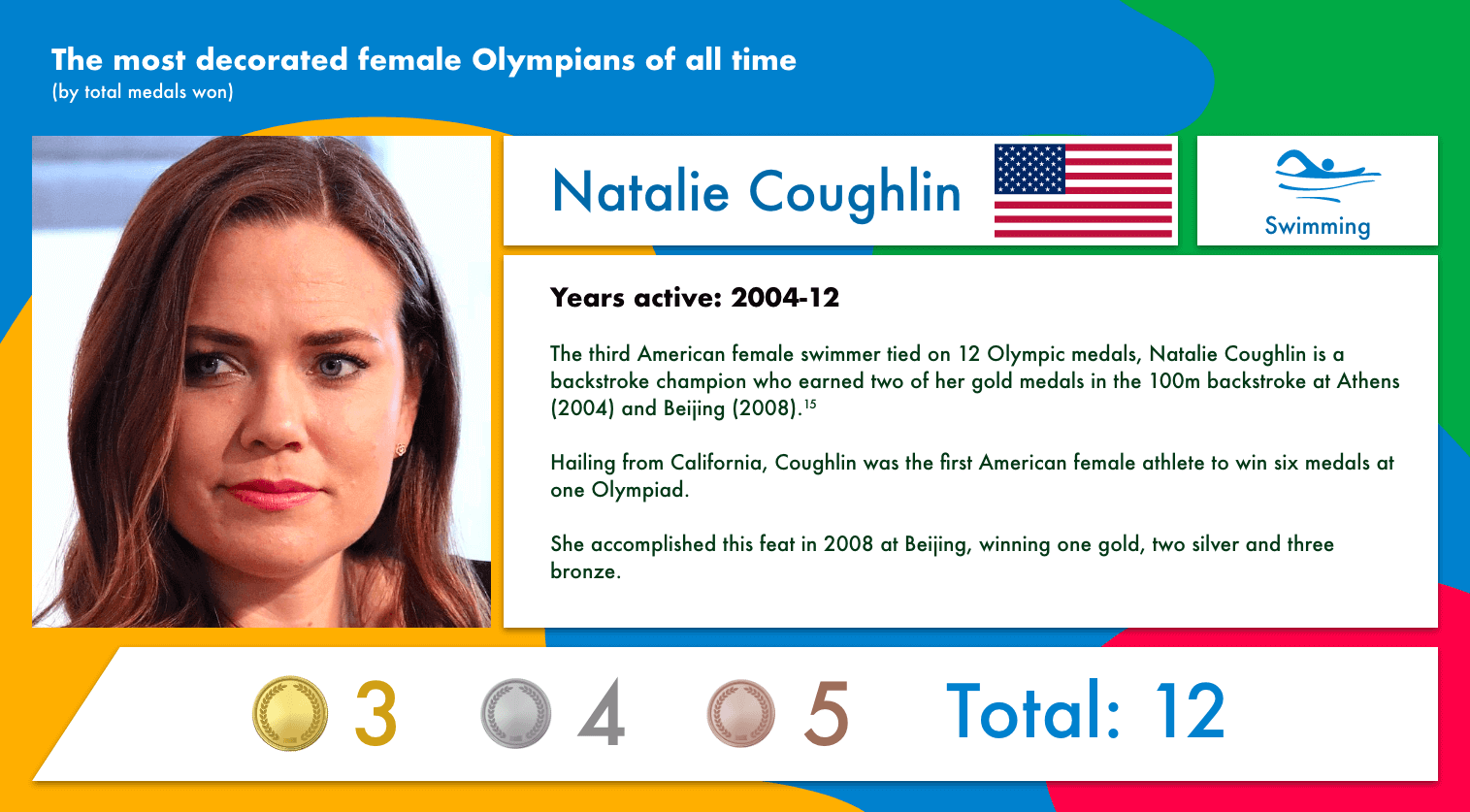
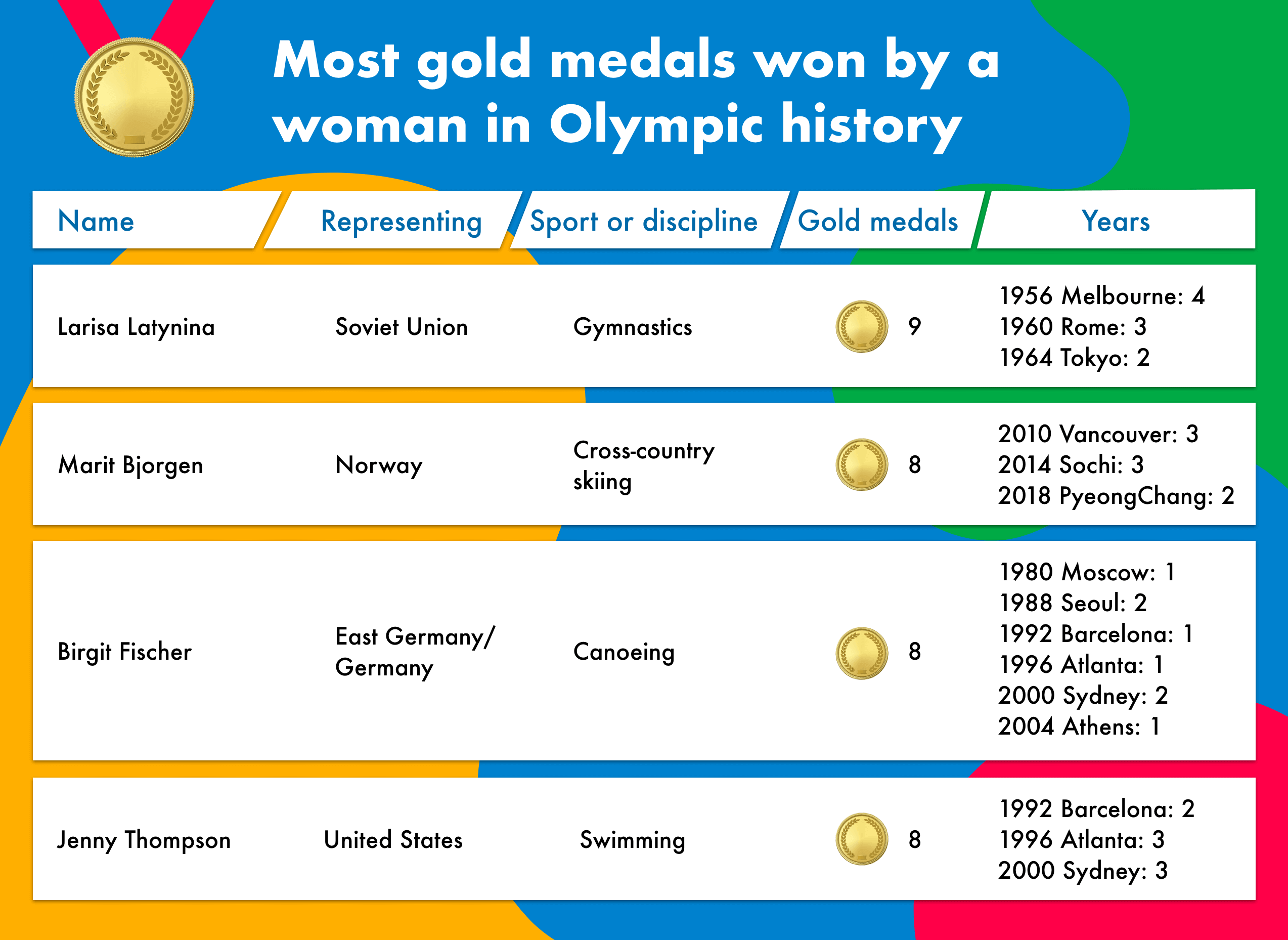 Source: Olympic.org. Olympic results. https://www.olympic.org/olympic-results. 2020. Accessed August 2020.
Source: Olympic.org. Olympic results. https://www.olympic.org/olympic-results. 2020. Accessed August 2020.
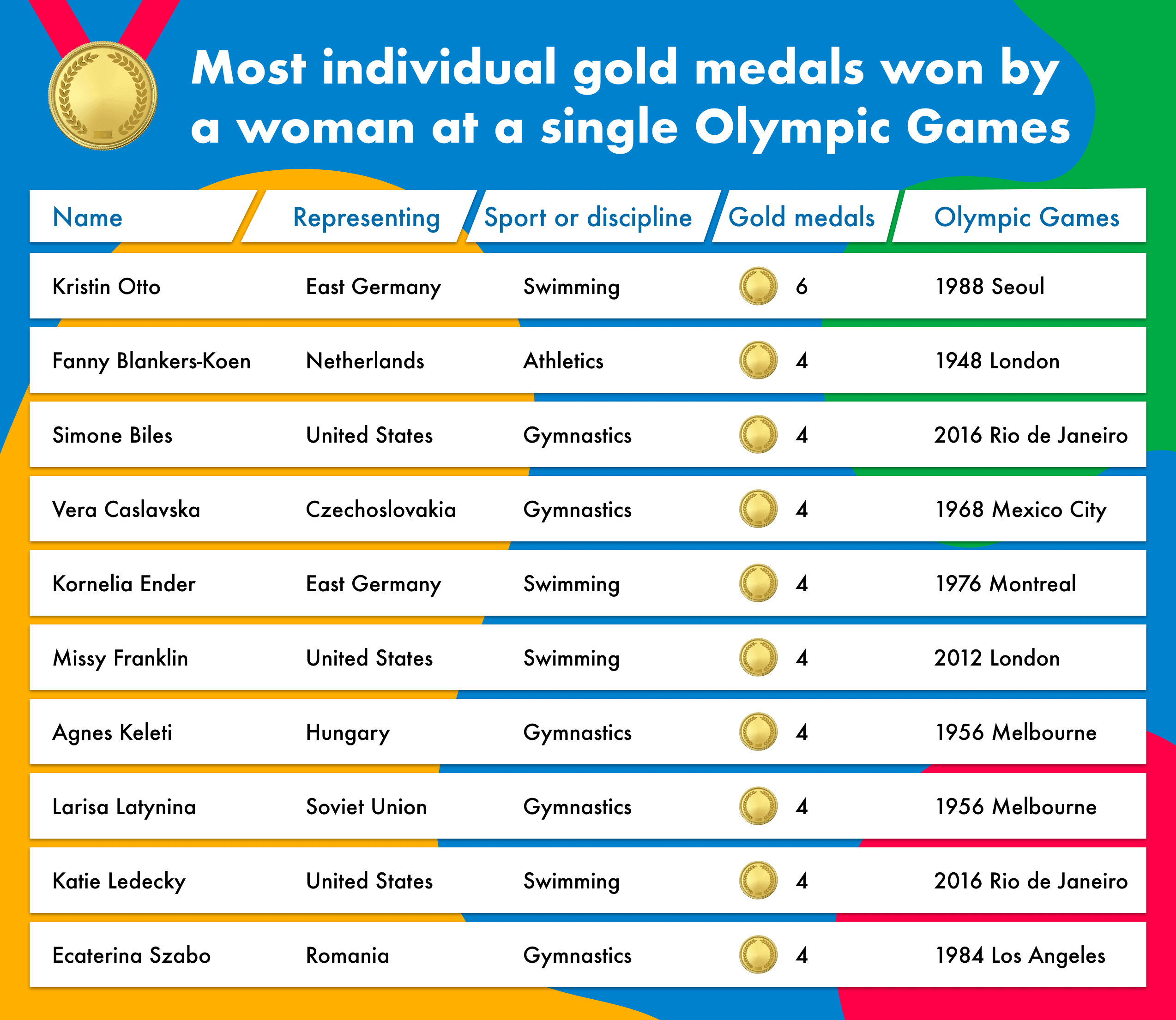 Source: Olympic.org. Olympic results. https://www.olympic.org/olympic-results. 2020. Accessed August 2020.
Source: Olympic.org. Olympic results. https://www.olympic.org/olympic-results. 2020. Accessed August 2020.

Brought to you by Compare the Market: Making it easier for Australians to compare Health Insurance.
1. Judith Swaddling, The Ancient Olympic Games, 2015. Published by University of Texas Press.
2. The Library of Congress. The Olympics: A Guide to Reference Sources. https://www.loc.gov/rr/main/olympics/dates.html. 2018. Accessed August 2020.
3. Olympic.org. Key dates in the history of women in the Olympic movement. https://www.olympic.org/women-in-sport/background/key-dates. 2020. Accessed July 2020.
4. Ibid.
5. World athletics. Plaque commemorating first women’s Olympics unveiled in Monte Carlo. https://www.worldathletics.org/news/news/plaque-commemorating-first-womens-olympics-un. 2008. Accessed August 2020.
6. Radio Free Europe. The First Winter Olympics: Chamonix 1924. https://www.rferl.org/a/winter-olympics-france/25238845.html. 2014. Accessed August 2020.
7. Olympic.org. Key dates in the history of women in the Olympic movement. https://www.olympic.org/women-in-sport/background/key-dates. 2020. Accessed July 2020.
8. Ibid.
9. Ibid.
10. WBUR. Larisa Latynina: An Unlikely Medal Leader. 2012. https://www.wbur.org/onlyagame/2012/07/28/latynina-medal-leader. Accessed August 2020.
11. Eureka alert. Public release. How to train like the world’s most successful female cross-country skier. https://www.eurekalert.org/pub_releases/2018-02/nuos-htt021618.php. 2018. Accessed August 2020.
12. Art of the Olympians. Birgit Fischer. https://artoftheolympians.org/artists/birgit-fischer/. 2016. Accessed August 2020.
13. United States Olympic and Paralympic Museum. Jenny Thompson. https://usopm.org/jenny-thompson/. 2020. Accessed August 2020.
14. Team USA. Dara Torres. https://www.teamusa.org/usa-swimming/athletes/Dara-Torres. 2020. Accessed August 2020.
15. Team USA. Natalie Coughlin. https://www.teamusa.org/usa-swimming/athletes/Natalie-Coughlin. 2020. Accessed August 2020.
16. Olympic.org. Syers skates to landmark gold. https://www.olympic.org/news/syers-skates-to-landmark-gold. 2020. Accessed August 2020.
17. Olympic.org. Alice Coachman – athletics. https://www.olympic.org/news/alice-coachman-athletics. Accessed July 2020.
18. Tokyo2020.org. Blast from the past: The curse of the hurdles. https://tokyo2020.org/en/news/blast-from-the-past-the-curse-of-the-hurdles. 2020. Accessed August 2020.
19. AIATSIS. Cathy Freeman. https://aiatsis.gov.au/explore/articles/cathy-freeman. 2020. Accessed August 2020.
20. Olympic Games. From Rio 2016 to Tokyo 2020 https://www.olympic.org/news/the-legend-of-simone-biles-continues-to-grow. Accessed July 2020.
21. Team GB. Love stories: Kate and Helen Richardson-Walsh. https://www.teamgb.com/video/love-stories-with-kate-and-helen-richardson-walsh/38By0X5eMgEcOdCPBxofSN. 2020. Accessed August 2020.